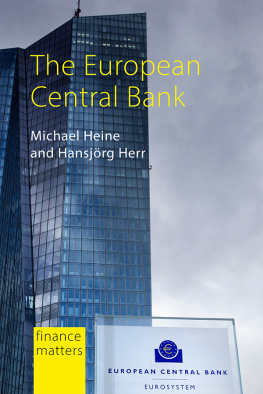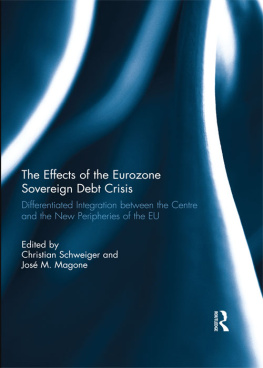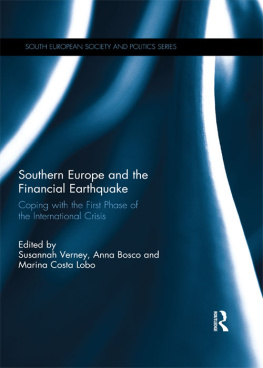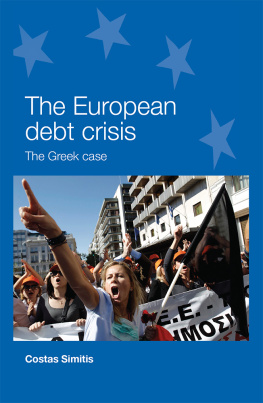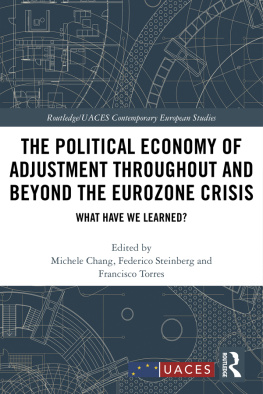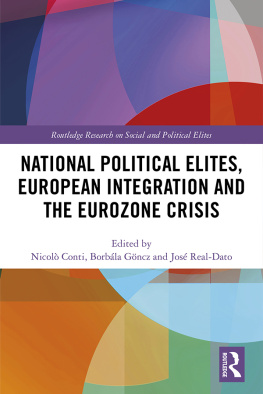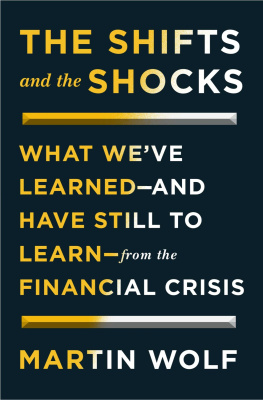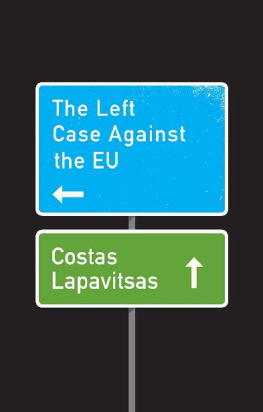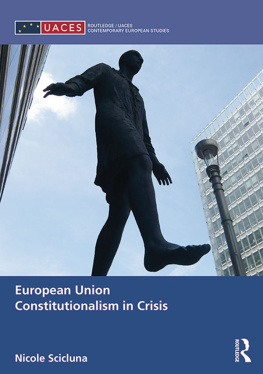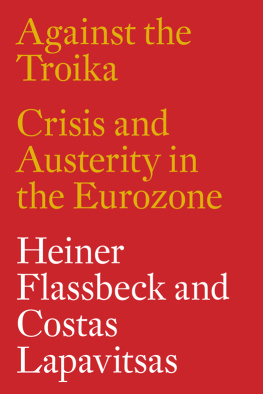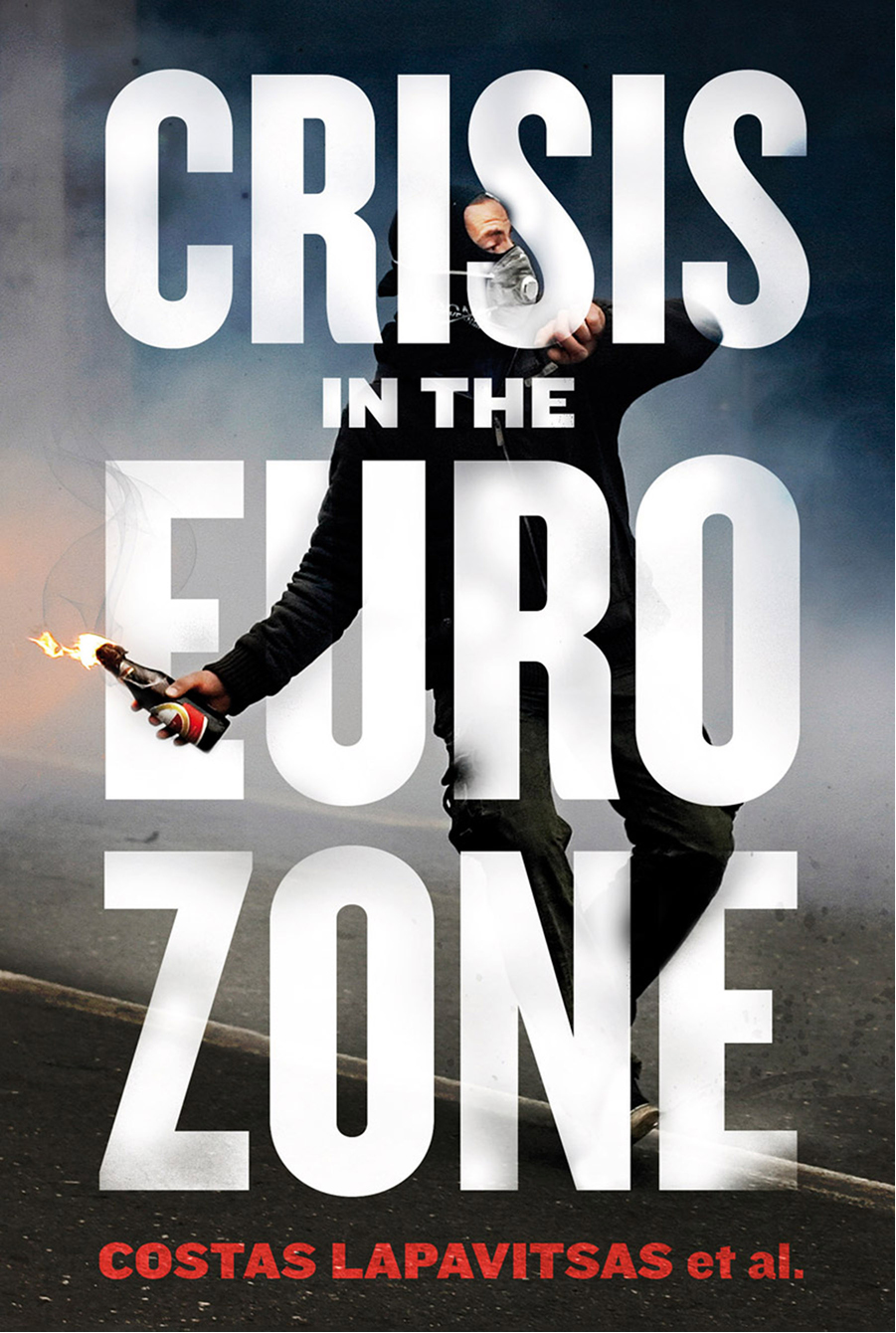
Crisis in the urozone
C. Lapavitsas, A. Kaltenbrunner, G. Labrinidis, D. Lindo,
J. Meadway, J. Michell, J.P. Painceira, E. Pires, J. Powell,
A. Stenfors, N. Teles, L. Vatikiotis
Introduction by Stathis Kouvelakis

First published by Verso 2012
The collection Verso 2012
The contributions The contributors 2012
This book is a revised version of three reports on the eurozone crisis published online by Research on Money and Finance, namely Eurozone Crisis: Beggar Thyself and Thy Neighbour , March 2010; The Eurozone Between Austerity and Default , September 2010; and Breaking Up? A Route Out of the Eurozone Crisis , November 2011. The first RMF report also appeared as an article in the Journal of Balkan and Near Eastern Studies , vol. 12, issue 4. The authors would like to thank the journal for permission to republish this material.
All rights reserved
The moral rights of the authors have been asserted
1 3 5 7 9 10 8 6 4 2
Verso
UK: 6 Meard Street, London W1F 0EG
US: 20 Jay Street, Suite 1010, Brooklyn, NY 11201
www.versobooks.com
Verso is the imprint of New Left Books
ISBN-13: 978-1-7816-8041-4
eISBN: 978-1-781-68041-4
British Library Cataloguing in Publication Data
A catalogue record for this book is available from the British Library
Library of Congress Cataloging-in-Publication Data
A catalog record for this book is available from the Library of Congress
CONTENTS
3Labour remuneration and productivity: A general squeeze,
but more effective in Germany
14Monetary disunion: Institutional malfunctioning
and power relations
PREFACE
The storm buffeting the common currency of Europe is an integral part of the great crisis that commenced in 2007. Barely five years after bank speculation in the US real estate market had caused international money markets to freeze, three peripheral countries of the eurozone were in receipt of bailout programmes, Greece was on the brink of exiting the monetary union, and the mechanisms of the euro faced breaking pressure.
The causal chain linking US financial market turmoil to European Monetary Union instability has been analysed by several economists, including those authoring the present book. Summarily put, the collapse of Lehman Brothers in 2008 led to a major financial crisis that ushered in a global recession; the result was rising fiscal deficits for several leading countries of the world economy. For countries in the eurozone periphery, already deeply indebted after years of weakening competitiveness relative to the eurozone core, fiscal deficits led to restricted access to international bond markets. Peripheral states were threatened with insolvency, posing a risk to the European banks that were among the major lenders to the periphery. To rescue the banks, the eurozone had to bail out peripheral states. But bailouts were accompanied by austerity that induced deep recessions and rendered it hard to remain in the monetary union, particularly for Greece.
The threat to the euro would perhaps have been understood earlier had more attention been paid to history. In 1929 speculation in the New York Stock Exchange induced a crash that led to global recession; by 1932 it had become necessary to abandon the gold standard that had only been reintroduced in 1926. The recessionary forces in the world economy had grown vast in part because states had been trying to protect gold reserves and associated fixed exchange rates. It became impossible to cling on to the rigid system of metallic world money.
The European Monetary Union, needless to say, is quite different from the gold standard. It is a system of managed money that is free from the blind and automatic functioning of gold in the world market. At the very least, member states do not need large reserves of euros, in contrast to the pressure to hold gold reserves under the gold standard. But it is similar to the gold standard inasmuch as it fixes exchange rates, demands fiscal conservatism, and requires flexibility in labour markets. And, insofar as it imposes a common monetary policy across all member states, it is even more rigid.
The ruling strata of Europe have been determined to create a form of money capable of competing against the dollar in the world market, and thereby furthering the interests of large European banks and enterprises. Governments have not desisted even when the mechanisms of the euro have grossly magnified the recessionary forces present in the European economy. The burden has been passed onto the working people of Europe in the form of reduced wages and pensions, higher unemployment, unravelling of the welfare state, deregulation and privatisation.
To force the costs of defending the common currency onto working people, leading European governments have spared no warning of the dire consequences that would follow the dismantling of monetary union. In this endeavour, they have received support from the research departments of banks as well as from academics willing to paint apocalyptic pictures of life after the euro. In this regard too, the European Monetary Union is similar to the gold standard. Public discourse in the late nineteenth and early twentieth century recoiled in horror at the suggestion of its abandonment.
The gold standard was, of course, abandoned without the world coming to an end. International monetary unions, moreover, tend to have a limited life span, even when constructed with the most solemn pledges. Regardless of what politicians and journalists may say, the European Monetary Union is untenable in its current form. As the inherent tensions come to a head, the countries of Europe will be forced to devise new monetary arrangements for their domestic and international transactions.
The inculcation of fear has been made easier by the domination of Europeanism among the intellectual and political forces that could have offered an alternative narrative. For more than two decades, the notion that the euro is the epitome of European unity has grown in influence among the politicians and the opinion makers of Europe. Even more strikingly, a form of money that aims at serving the interests of big banks and big business has been presented as an inherently social-democratic project.
The belief that the monetary union represents social progress that could truly benefit working people through judicious institutional intervention has commanded support in unexpected quarters. Thus, vocal supporters of the euro have come from the Keynesian tradition, even though the latter has historically rejected rigid international monetary arrangements. Astoundingly, support for the euro has also come from sections of the European Left, including its furthest reaches. Who would have imagined that putative heirs of Karl Marx would be transmogrified into defenders of a variant of the gold standard?
Support for the monetary union from the European Left has decisively affected the political fallout from the crisis. Many have spoken volubly about the iniquities of capitalism, the disastrous nature of neoliberalism, the absurdity of austerity, the poison of inequality, and so on, and so forth. But whenever the discussion has turned to the euro, which has, after all, been the focal point of the crisis, much of the Left has sought simply to change the subject. Or it has put forth proposals with impeccable mainstream credentials, including issuing eurobonds and lending by the European Central Bank to member states. In the face of the deepest crisis of European capitalism since the Second World War, the left alternative has often appeared as a reworking of Bagehots advice to the British ruling class at the end of the nineteenth century, namely to lend freely and ask questions later. It is no wonder that the Left has been marginal to the politics of the crisis so far.
Next page

